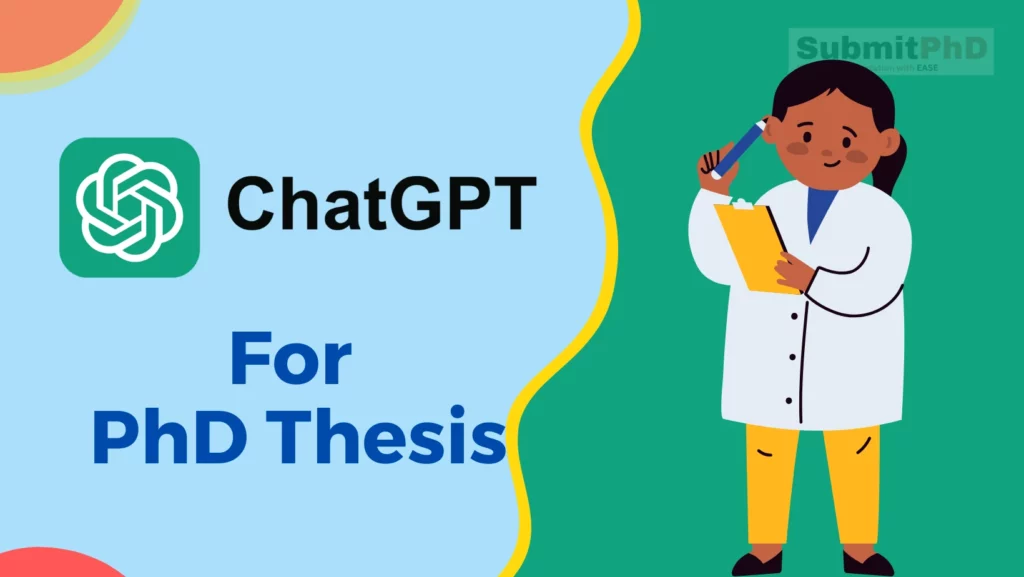

In the realm of academia, the proliferation of research papers can be overwhelming.
With countless scholarly articles published every day, researchers and scholars are often faced with the daunting task of sifting through a vast amount of information to find relevant and valuable content.
This is where AI summarizer tools come into play.
These tools utilize artificial intelligence and natural language processing to condense lengthy research papers into concise summaries, making it easier for researchers to quickly grasp the key insights and relevance of a particular paper.
Power of AI Summarizer
Unleashing the Potential
AI summarization tools have emerged as a game-changer in the world of academia.
These advanced algorithms harness the power of artificial intelligence to distill complex research papers into concise, coherent summaries.
Gone are the days of spending countless hours poring over lengthy documents, trying to pinpoint the key takeaways.
With the best AI summarizer, you can unlock the full potential of your research endeavors.
Time-Saving Efficiency
Time is a precious resource in academia, and traditional methods of research paper analysis can be incredibly time-consuming.
The AI summarizer streamlines this process, allowing you to review the most critical information in a fraction of the time it would take to read the full paper.
This efficiency is invaluable, enabling you to cover more ground and explore a wider range of topics.
Improved Comprehension:
Research papers often contain highly technical language and intricate concepts. This can be a significant barrier to understanding, especially for those who are new to a particular field of study.
AI summarization tools break down these barriers by providing simplified, user-friendly summaries that make complex topics more accessible.
They bridge the gap between experts and novices, ensuring that knowledge is not confined to a select few.
Searching for the Best AI Summarizer
With the increasing demand for AI summarization tools, the market has witnessed a surge in options.
To harness the true benefits of this technology, it’s essential to identify the best AI summarizer for research papers. Here are some key criteria to consider in your quest:
Accuracy
The hallmark of a reliable AI summarizer is its accuracy. The best tools are those that can capture the essence of a research paper without omitting critical information.
They must maintain the integrity of the original work while providing a concise summary.
Customization
Every researcher is unique, and their needs may vary. Look for an AI summarizer that allows for customization.
The ability to tailor the summary length and depth ensures that the tool adapts to your specific requirements.
Language Support
In the global academic community, research papers are published in a multitude of languages.
The best AI summarizer should offer comprehensive language support, breaking down language barriers and facilitating cross-cultural knowledge exchange.
Integration
Seamless integration with your existing research tools is a vital consideration. The best AI summarizer should complement your workflow, making the summarization process a natural part of your research journey.
Best AI Summarizer Tools for Research Papers
Let’s explore ten top AI summarization tools, each with its unique set of features and advantages:
1. Iris.AI
Iris.AI is a dedicated AI summarizer designed specifically for the scientific community. Its specialty lies in accurately summarizing scientific content, making it a preferred choice for researchers in various scientific domains.
Iris.AI goes beyond mere summarization, offering additional features for knowledge mapping and literature exploration, which can significantly enhance research endeavors.
Pros:
- Iris.AI is designed specifically for scientific content, ensuring high accuracy in summarization.
- It offers additional features for knowledge mapping and literature exploration.
- Supports collaboration and team sharing of summarized documents.
Cons:
- Access to Iris.AI may be restricted due to subscription fees.
- The tool may not be as proficient in summarizing content outside the scientific domain.
2. SciSummary
SciSummary is an AI-powered tool tailored to the needs of scientific researchers.
With a primary focus on summarizing complex scientific research papers, SciSummary aims to provide accurate and concise summaries that capture the essence of scholarly work.
Its specialized approach makes it a valuable asset for those in the scientific community seeking to quickly grasp the key findings and insights within technical research documents.
Pros:
- SciSummary excels in summarizing scientific research papers with a high degree of accuracy.
- It can handle papers from various domains of science, making it versatile for researchers in different fields.
- The tool offers integration with reference management software.
Cons:
- Limited availability and accessibility, primarily catering to scientific research papers.
- May struggle with non-scientific jargon and interdisciplinary content.
3. SummarizeBot
SummarizeBot is a versatile AI summarizer designed to assist users in summarizing a wide range of content, from research papers to web articles.
One of its standout features is its ability to generate summaries in multiple languages, making it a valuable tool for a global audience.
Additionally, its integration with popular messaging apps ensures a user-friendly experience.
Pros:
- SummarizeBot supports a wide range of document types, including research papers, web articles, and more.
- It can generate summaries in multiple languages, enhancing its global appeal.
- Integration with popular messaging apps, making it user-friendly.
Cons:
- The quality of the summaries can vary depending on the complexity of the content.
- Limited customization options for summary length.
4. Scholarcy
Scholarcy caters specifically to the academic and research community. It excels in summarizing academic papers and even provides reference extraction, simplifying citation management for researchers.
With the option to download PDF summaries, Scholarcy ensures that users have offline access to their summarized research content.
Pros:
- Scholarcy is adept at summarizing academic papers, making it a valuable tool for researchers.
- It offers reference extraction, aiding in citation management.
- Provides downloadable PDF summaries for offline access.
Cons:
- Limited availability and scope, primarily focusing on academic research papers.
- The quality of summaries can vary based on the complexity of the content.
5. Genei
Genei is a versatile AI summarizer that can handle a variety of content types, including research papers and books. With integration options for cloud storage platforms, users can conveniently upload their documents for summarization.
Genei also supports collaboration, making it suitable for team projects and research endeavors.
Pros:
- Genei is a versatile tool capable of summarizing various types of content, including research papers and books.
- It offers integration with cloud storage platforms for convenient document upload.
- Provides collaborative features for team projects.
Cons:
- The accuracy of summaries may vary based on the complexity of the content.
- Free usage may have limitations, and advanced features may require a subscription.
6. Paper Digest
Paper Digest employs AI to generate summaries and highlight key points in research papers. Its clean and straightforward user interface makes it a convenient choice for those seeking quick access to summarized content.
It can be accessed on the web or as a browser extension, ensuring flexibility and ease of use.
Pros:
- Paper Digest leverages AI to generate summaries and highlights key points in research papers.
- It offers a clean and straightforward user interface.
- Users can access summaries on the web or via a browser extension.
Cons:
- The tool may not be as accurate with highly specialized or technical research papers.
- Limited customization options for summary length and style.
Lynx AI is recognized for its proficiency in summarizing scientific content. It offers integration with popular reference management tools, streamlining the process of organizing research materials.
Researchers can fine-tune summaries to meet their specific requirements, tailoring the summarization process to their needs.
Pros:
- Lynx AI is known for its efficient summarization of scientific content.
- It offers integration with popular reference management tools.
- Users can fine-tune summaries to suit their needs.
Cons:
- Accessibility may be restricted due to subscription fees.
- May struggle with interdisciplinary papers that require domain-specific knowledge.
Also read: Best AI-Powered Tools for Literature Review [2023]
8. TLDR This
TLDR This is a straightforward and user-friendly AI summarizer designed for quick summarization of online articles and research papers.
Accessible as a browser extension, TLDR This is an excellent tool for users who wish to summarize content they encounter while browsing the web.
It offers summarized content in various formats, including text and audio, catering to diverse user preferences.
Pros:
- TLDR This is a simple and user-friendly tool for quick summarization of online articles and research papers.
- It’s available as a browser extension, making it easily accessible during web browsing.
- Provides summarized content in various formats, including text and audio.
Cons:
- May not be as precise or in-depth as some other AI summarizer tools.
- Limited customization options for summary content.
9. Resoomer
Resoomer stands out with its user-friendly interface and visually appealing design. It simplifies the summarization of online content by offering a browser extension, making it an ideal choice for those who frequently read and summarize web articles.
While effective for general content, Resoomer may have limitations when dealing with highly specialized research papers.
Pros:
- Resoomer is known for its user-friendly and visually appealing interface.
- It provides an extension for web browsers, simplifying the summarization of online content.
- The tool supports multiple languages.
Cons:
- While effective for general content, it may lack the specialized knowledge required for in-depth research papers.
- Free usage is limited, and more advanced features are behind a paywall.
Copernic Summarizer is an AI summarizer tool that focuses on providing offline functionality, offering users the advantage of enhanced privacy and data security.
This tool is adept at summarizing various document formats, including PDFs and Word documents, and provides users with the flexibility to manually adjust summary length and content.
Pros:
- Copernic Summarizer offers offline functionality, ensuring privacy and data security.
- It can handle a variety of document formats, including PDFs, Word documents, and web pages.
- Users can manually adjust the summary length and content.
Cons:
- The user interface may appear dated and less intuitive compared to newer AI summarizer tools.
- May not be as accurate in summarizing complex research papers.
Conclusion
AI summarizer tools can be valuable aids for researchers and scholars seeking to streamline the process of digesting research papers.
Each of these tools has its unique strengths and weaknesses, and the choice of which one to use depends on the specific needs and preferences of the user.
It’s important to consider the type of content, level of accuracy required, and the user interface when selecting the most suitable AI summarizer for research papers.
Frequently Asked Questions (FAQs)
1. What is an AI summarizer for research papers?
An AI summarizer for research papers is a software or tool that uses artificial intelligence and natural language processing techniques to condense lengthy research papers into shorter, more concise summaries. These summaries aim to capture the key insights and essential information from the original paper, making it easier for researchers to quickly understand the content.
2. How do AI summarizer tools work?
AI summarizer tools work by analyzing the text of a research paper, identifying important sentences and paragraphs, and then generating a coherent and concise summary. They use various algorithms and language models to understand the context and relevance of the content in the paper.
3. What are the benefits of using AI summarizer tools for research papers?
- AI summarizer tools save time by quickly providing condensed versions of research papers.
- They help researchers identify the key findings and main points of a paper.
- They can assist in managing and organizing large volumes of research literature.
- AI summarizers can improve accessibility, especially for people with limited time or specific research needs.
4. Are AI summarizer tools accurate?
The accuracy of AI summarizer tools can vary. Some tools are more accurate than others, and their effectiveness depends on the complexity and subject matter of the research paper. While they can provide a helpful overview, users should always review the original paper for a comprehensive understanding.
5. Can AI summarizer tools be used for all types of research papers?
AI summarizer tools are designed for a wide range of research papers, but their effectiveness can vary depending on the tool and the subject matter of the paper. Some tools are specialized in specific domains, such as scientific research, while others are more general in their applicability.
6. Do AI summarizer tools support different languages?
Many AI summarizer tools support multiple languages, but the level of language support may vary. Some tools are proficient in summarizing content in a variety of languages, making them suitable for a global audience.
7. Can AI summarizer tools handle documents in different formats?
Some AI summarizer tools can handle various document formats, including PDFs, Word documents, and web articles. Users should check the capabilities of a specific tool to ensure it meets their format requirements.
8. Are AI summarizer tools free to use?
Some AI summarizer tools offer free access with limited features, while others may require a subscription or payment for full access to advanced features. The availability of free and premium options depends on the specific tool.
9. Can AI summarizer tools help with citation and reference management?
Some AI summarizer tools offer features for extracting references and citations from research papers, which can be helpful for managing and citing sources in academic and research work.
10. How do I choose the right AI summarizer tool for my needs?
To choose the right AI summarizer tool, consider factors such as the type of content you need to summarize, the level of accuracy required, language support, and user interface. It’s advisable to try out different tools and read reviews to determine which one best suits your specific requirements.
These introductions and FAQs provide an informative overview of the popular AI summarizer tools for research papers and help users understand their features and applications. When using such tools, it’s essential to consider individual needs and preferences to select the most suitable option.


